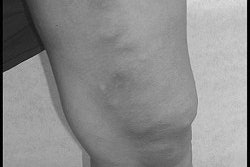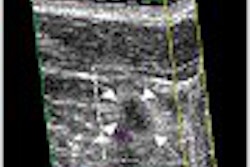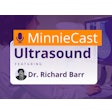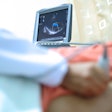(Ultrasound Review) Transvaginal ultrasound is a highly accurate method of demonstrating uterine cesarean scars and associated defects, according to a study reported in the January issue of Obstetrics and Gynecology. Researchers at Harris Methodist Fort Worth Hospital and University of Iowa Hospitals and Clinics combined to investigate the ability of transvaginal ultrasound to detect cesarean scars in non-pregnant women.
Previous research has documented an association between cesarean defects and abnormal uterine bleeding, suggesting these fluid defects contained menstrual blood that was subsequently released. They studied a total of 70 female volunteers. Thirty-eight women that had prior vaginal delivery acted as control subjects, and the remaining 32 women had at least one cesarean delivery. Transvaginal ultrasound examination of the uterus, cervix and adnexa was performed using a high-frequency transducer and a Sequoia scanner (Siemens Medical Solutions, Malvern, PA).
Transvaginal ultrasound demonstrated a cesarean scar as an echogenic line through the myometrium near the level of the internal os, and a cesarean scar defect was present when there was an anechoic area (fluid) within the scar. Women that had prolonged labor prior to cesarean were more likely to show a cesarean scar defect, and so were women that had multiple cesarean deliveries. Real-time transvaginal ultrasound was 100% sensitive and 100% specific for detecting cesarean scars, they reported. Reviewing stored images decreased the sensitivity to 87%, but specificity remained the same (100%). "Fluid was visualized within the scars of 13 of 31 subjects (42%) with a prior cesarean delivery," they reported.
The authors raised numerous questions regarding the significance of cesarean scar defects and the ability of transvaginal ultrasound to predict the risk of uterine rupture in women choosing trial labor after cesarean section. The group concluded that "transvaginal ultrasound holds promise as a useful tool for trying to answer these important clinical questions in prospective trials."
Detection of cesarean scars by transvaginal ultrasoundArmstrong, V. et al
Department of obstetrics and gynecology, Harris Methodist Fort Worth Hospital, Arlington, TX
Obstet Gynecol 2003 January; 101:61-65
By Ultrasound Review
April 30, 2003
Copyright © 2003 AuntMinnie.com



















